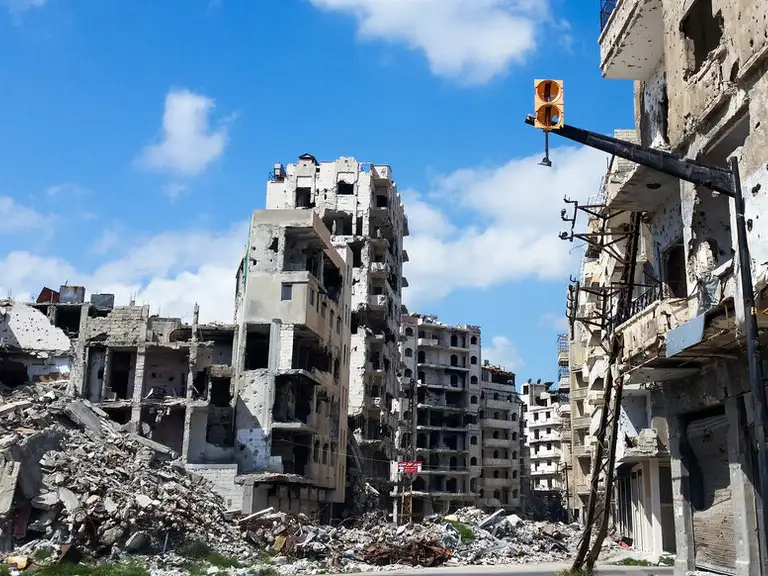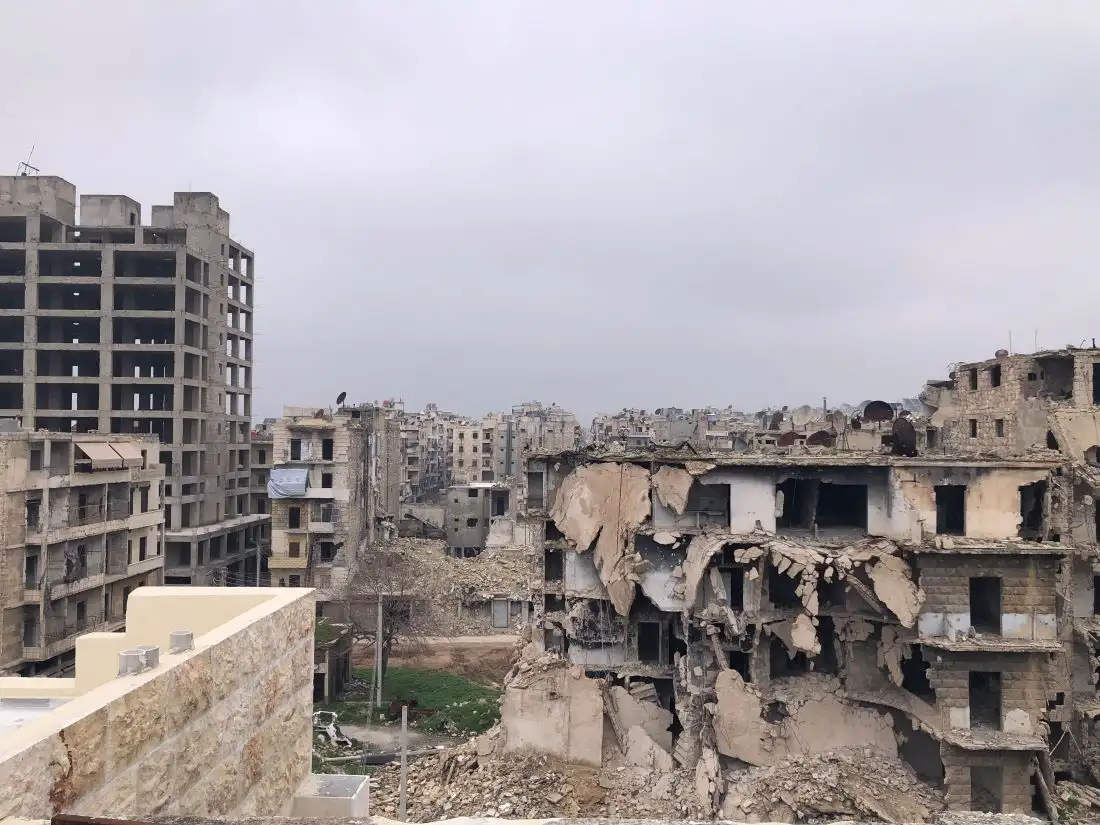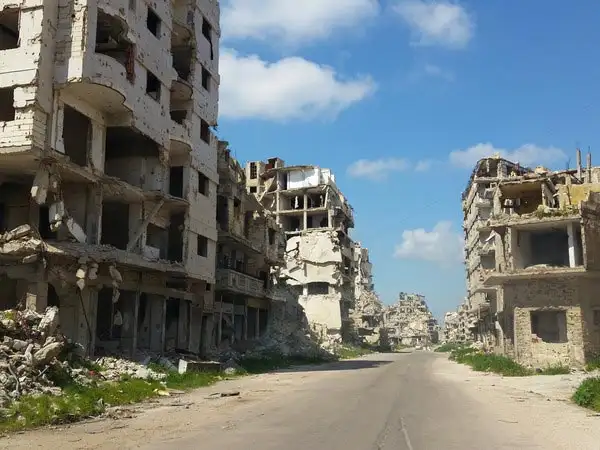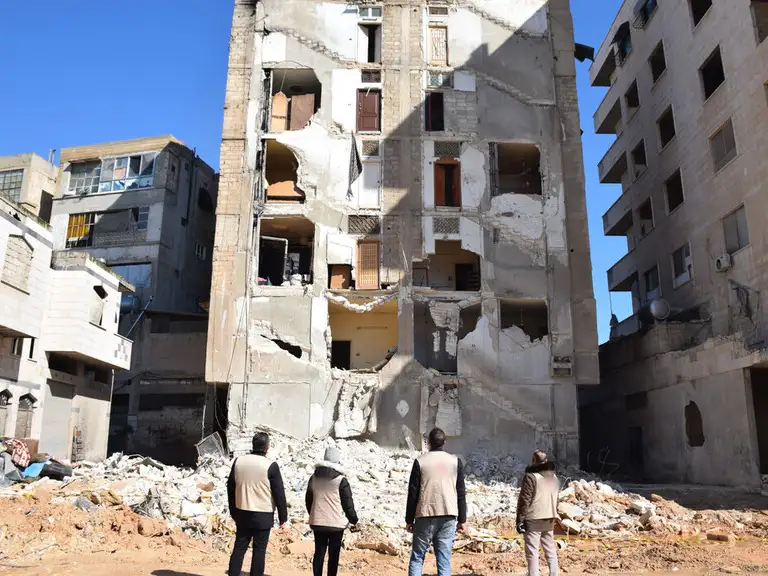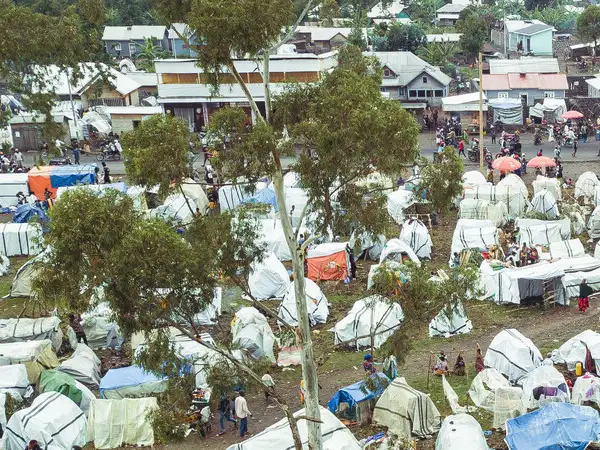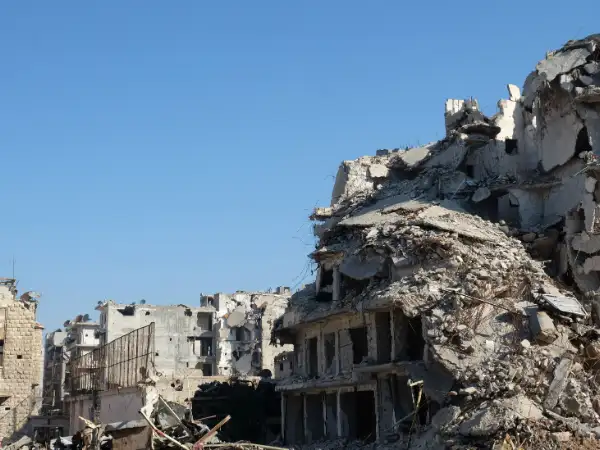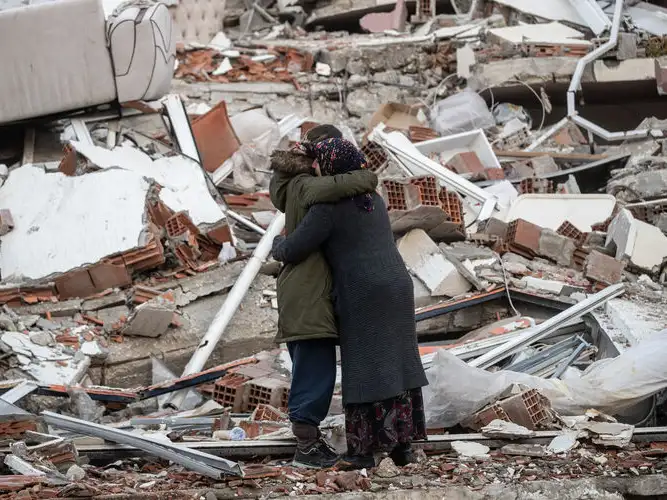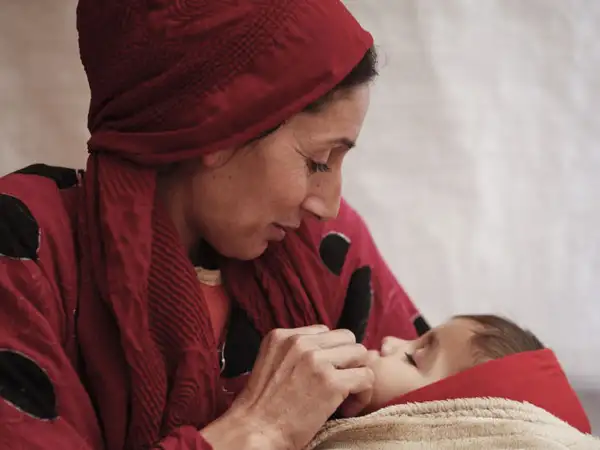

Syrian partner providing life-saving assistance to internally displaced people in December 2024
The dramatic and rapid fall of the Assad regime in 2024 initially brought some hope to the Syrian people, but it did not bring an immediate end to the humanitarian needs in the country.
Through nearly 14 years of conflict in Syria, homes, critical infrastructure and the economy have been destroyed. The country is devastated. Current death toll estimates from over a decade of war are as high as 620,000. Today, 70 per cent of the population remains in need of humanitarian assistance and 90 per cent live below the poverty line.
Since 2011, more than 13 million Syrians have been forced to flee their homes in search of safety: 6 million Syrian refugees have been living in neighbouring countries like Turkey, Lebanon and Jordan, while UNHCR estimates that over 570,000 Syrians have crossed back to Syria via neighboring countries during the six months after the regime end of 2024.
Significant challenges remain for those considering returning, including lack of services and infrastructure, destroyed homes, economic hardship, as well as safety and security concerns. After more than a decade of crisis, Syria is experiencing one of the world's worst humanitarian emergencies. Basic needs continue to deteriorate due to economic collapse, ongoing displacement and damaged infrastructure. Millions of Syrians face food shortages, limited access to water and sanitation, as well as a declining healthcare system, making an urgent and coordinated humanitarian response more necessary than ever.
A better world needs all of us. That’s why CAFOD’s partners have been working in Syria throughout the conflict and will continue doing so as humanitarian needs in Syria remain at unprecedented levels. Now, more than ever, we need people’s support to help Syrians and the Syrian civil society build back better.
Our impact in 2024
Last year, we reached 136,344 people in Syria through our local partners.
We supported the restoration of 57 buildings in cities where entire neighborhoods were heavily impacted by strikes, as well as the restoration of 119 housing units to provide safety, security and protection against the elements.
We installed 60 solar street lights to ensure safety and security in neighbourhoods destroyed by conflict.
During a time when over 50 per cent of the healthcare system in Syria was destroyed, we supported three healthcare centres to ensure working lab testing, medication and consultations.
We supported 40 small and medium-sized enterprises (SMEs) led by women and 750 students (children and adolescents) living in camps to access informal education and psychosocial support.
In addition, we reached around 325,962 community members through community-led responses, including through workshops, training days and coaching sessions with community-based organisations (CBOs) and community members and by providing mini grants.
Why CAFOD works in Syria
The impact of the nearly 14-year conflict and the aftermath of the earthquake in 2023 has devastated the economy and left millions in need of basic essentials like food, clean water and shelter.
In Syria, 90 per cent of people are experiencing poverty, and an estimated 16.7 million Syrians are still in need of humanitarian assistance, including access to food and water.
Families are suffering from loss of income as people are unable to work, leading to an increase in hunger. Many vulnerable people – often women and children – are more at risk, including from exploitation.
Widespread shelling during the conflict destroyed whole cities and forced millions to flee to overcrowded camps where access to healthcare and clean water is limited.
Throughout the conflict, more than 13 million people from Syria have been displaced, including around 7.4 million internally displaced and about 6 million as refugees, mainly in neighbouring countries. Many who want to return home to Syria after the fall of Assad will have no home to go to, no place to live.
Many children are dealing with the trauma of having witnessed the loss of loved ones and the destruction of their homes.
How we’re responding
Together, we can build a better world. In Syria, we’re working with local partners to support communities with life-saving assistance, addressing the needs of the Syrian people affected by a 14-year-long conflict, and helping Syria to build a better future. We are working with Syrian organisations, community-based organisations and local initiatives, working closely with the community themselves to address their needs.
Current projects
We’re working with local partners to get emergency food, water and hygiene equipment to the families most in need, as well as items to help people survive freezing winters, like blankets and heaters.
We’re working with local communities to rehabilitate shelters for people affected by the conflict and earthquake, so everyone can have a safe and dignified home to live in. We’re also improving access to medication, consultations and lab testing for the most vulnerable, as well as counselling and group therapy (particularly for women and children).
We’re helping to provide technical skills to further develop professions and better serve the community through vocational training, as well as increasing productivity and income. This is helping to increase the resilience of communities against economic shocks.
We’re working with farmers, with access to training about climate-smart agriculture techniques, as well as kitchen gardens which will support families with improved nutrition and the opportunity to sell surplus crops for extra income.
News about our work in Syria
How can I respond to the crisis in Syria?
Donate to the Refugee and Conflict Fund
Your donations will help reach vulnerable people fleeing war, poverty and natural disasters.
Prayers of intercession for Syria
Please join us in praying for peace in Syria with these prayers of intercession.
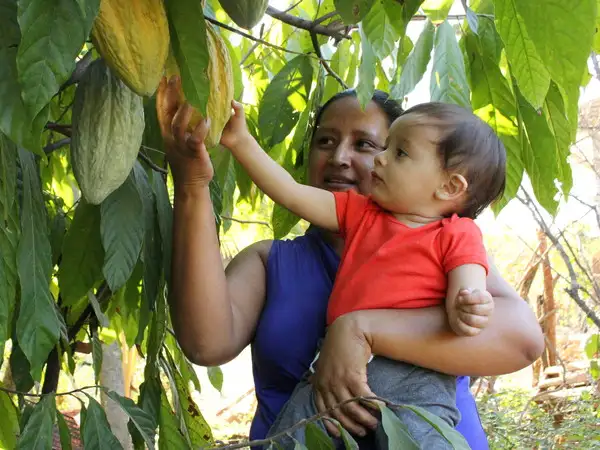
What we do
CAFOD is the official aid agency for the Catholic Church in England and Wales.
With your help, we reach out to people living in hard-to-reach places, in war zones and those who are discriminated against.


